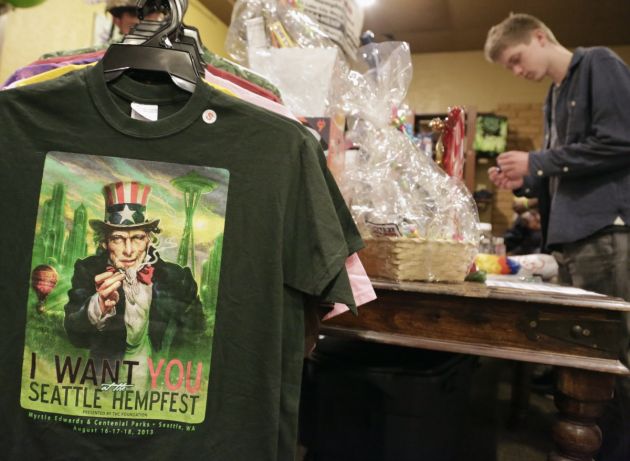New York bishops castigate plans to legalize marijuana in NY state
New York's Roman Catholic bishops don't want the state to go to pot.

The New York State Catholic Conference, which represents the state's 28 bishops, has issued a powerful statement opposing plans to legalize recreational marijuana in the state.
In a March 6 statement, the bishops said legalization would be disastrous, and accused the state of "encouraging destructive behavior" to raise tax revenue, Catholic News Agency reported.
Legalizing marijuana for recreational use would be akin to opening a "Pandora's Box that will have multiple deleterious effects on individuals, families, and all of society," said the statement.
"Vice is not an appropriate economic development engine for a state that prides itself as a national progressive leader," said the bishops. "Our state motto is Excelsior (ever upward), but policies that exploit addiction instead lead us ever downward."
New York state's Democratic Party Governor Andrew Cuomo announced in late 2018 that he intended to make the legalization of marijuana for recreational use a legislative priority for the coming year, a departure from his past views on the issue.
Counter to this New York's recreational marijuana battle sits on the front line of a generational war over American cannabis laws.
As debate heats up, USA Today New York reported it is compiling answers to key questions about legalized cannabis.
It said powerful black-market forces are threatening New York's efforts to tax and regulate recreational marijuana, experts said.
They cited reams of marijuana smuggled through the mail, bushels of cannabis secretly grown on rugged public land and international drug traffickers targeting New York's insatiable appetite for pot as examples.
"Yet the true scope of cannabis criminality is tough to grasp as authorities bust marijuana grows ranging from home-based operations in sleepy suburbs to backwoods cannabis patches in New York and across the country," said the newspaper.
CNA for its part reported that marijuana for medicinal use has been legal in New York since 2014, and the state legislature may consider a bill soon. Legalization efforts are opposed by not only the state's bishops, but also its law enforcement, medical, and educational communities.
USING DRUGS FOR STATE INCOME
The bishops expressed deep concern that efforts to use the drug to raise state income could have dire consequences for society, and particularly for young marijuana users.
"Of particular concern regarding the movement toward legalization is the impact on children," they said.
"Proponents argue that usage will be restricted to age 21 and older but, as we have seen in the alcohol and tobacco industries, producers of harmful products always find a way to market their products to children."
The bishops said that no increase in revenue would be worth the "increased teenage and childhood usage, harmful effects on developing brains, addiction, natural progression to harder drug use, increased impairment-related transportation accidents and deaths, and other potential public health and safety issues."
The bishops acknowledged racial disparities among those arrested for marijuana use and possession.
These disparities, which show a disproportionate effect on minority communities, have been advanced by legalization supporters as a benefit of decriminalization.
"We take this issue seriously," the bishops wrote.
"The state can and should take appropriate measures to ensure that skin color or zip code do not result in different outcomes for the same offense, including re-evaluating the justice of current criminal penalties for low-level possession."
"We must not simply throw up our hands and legalize a harmful substance in order to declare the problem of discrimination solved."